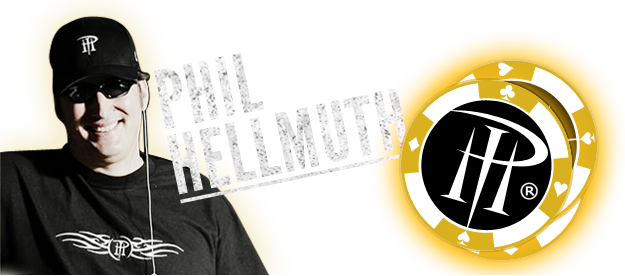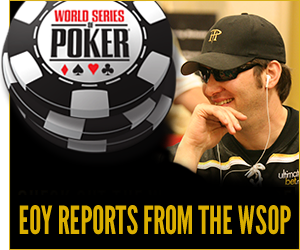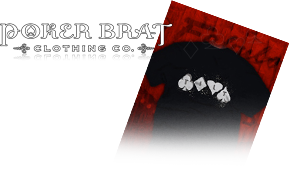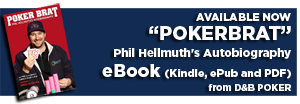-
The Holiday Game
Recently, in Madison, Wis., we had our annual holiday poker game. It was pot limit Hold ’em with $5-$5 blinds, a $1,000 buy-in, with $500 rebuys. This was a hefty poker event for a game held in Madison! After years of winning during my Madison trips, in 2004 I set the record loss bar at $14,000. Word of my huge loss spread throughout the state, and my poker friends talked about it for a year. In fact, they couldn’t wait for me to come back to town in 2005.
In 2005, I won $8,000 back, and so the stage was set for 2006. When we setup the game, it seemed like every poker player in the state of Wisconsin wanted a seat at that table. I asked for a 2 p.m. start time on Wednesday (Dec. 20), with a midnight break-up time (of course, we knew the game would go well past midnight). The game was held in Jon Green’s basement poker room, overlooking Lake Ripley, and featured Mark Kroon (online poker legend “P0ker H0”), Wayne “Tilly” Tyler, Tim Belstner, Larry Beilfus (“Concrete Larry”), amongst others.
-
Poker for Police Officers
I recently emceed the “Playin’ The Hand” Charity Poker Tournament in Phoenix for the Taser Foundation For Fallen Officer, held at the Fort McDowell card room. The Fallen Officers charity gives money to families of police officers who have died — or were seriously injured — in the line of duty. Like many of us, I became a bigger fan than ever of law enforcement and firefighters after 9/11. When Taser called on me to host the event; I knew that I’d do it.
The event was unique in that we had three poker tournaments: the first tournament featured a $200 buy-in with unlimited rebuys; the second was the $1,000 buy-in “VIP tournament”; and the third tournament combined the final three players from the first two tournaments (six total) and gave away a seat to the 2007 World Series of Poker (WSOP). One half of all of the tournament entry fees went to charity, and the other half went to the prize pool. In effect, by playing in this tournament you could do your part in helping to raise money for a worthy charity, and still win $10,000 for first place!
-
No ‘Blow-Up’ for Matusow
Mike “The mouth” Matusow is one of the best NLH (no-limit Hold ’em) players in the world. He understands more about the game than almost anyone else. If he could just avoid “The Mike Matusow Blow-Up” (coined by ESPN’s Norman Chad), then he would own many more titles, and many World Series of Poker bracelets in NLH. Matusow’s recurring blow-ups occur when he makes a crazy move — usually for all of his chips — for no good reason. When Matusow blows up, he himself will tell you that he blew up. For the record, Matusow does have two WSOP bracelets, both in a high-low split poker game called Omaha 8/b.
At the first tournament of the 2006 WSOP, Matusow had a decent chance to defend his Tournament of Champions title. We started with 27 players (I finished 22nd or so), and when they made it down to the final three, Matusow had roughly 25 percent of the chips. However, he went on to finish in third place, which made for a great start to his 2006 WSOP. He started out well, but let’s see how he finished (50 days later) in the main event. At the ESPN televised table, with the blinds at $100-$200, amateur Vinny Jadav (from Birmingham, England) opened on the button for $700 with Kd-Jd. Matusow — from the big blind — made it $2,300 to go with 7h-7c. Jadav called, the flop came down 9d-7s-4d, and Matusow bet out $2,100. Jadav then moved all-in for Matusow’s last $6,800. Matusow called, the turn card was the Ah, and the river was the 3d, which completed Jadav’s diamond flush and sent Matusow to the rail.
-
Furst Versus Worst
In the $1,500 buy-in pot limit Hold ’em tournament at the World Series of Poker (WSOP) this year, more than 1,100 players began the day looking for a coveted gold bracelet, and more than $340,000 for first place. Two days later, nine players sat down at the final table, including top pros John Juanda and Can Hua, high limit player Rick Chase, and “Tilt Boy” Rafe Furst. Juanda was eliminated when his Q-Q lost all-in before the flop versus Hua’s A-K.
With the blinds at $10,000-$20,000, Furst looked down at A-A on the button. He decided to just call the $20,000 bet in order to induce some action. In the old days, a common poker maxim was this: if you slow play your big pair and lose a big pot, then you get what you deserve. This rule seemed set in stone when I first came around the scene in the late 1980s, and for good reason. The top players felt that by slow playing big pocket pairs you were giving your opponents “free cards,” which they then used to bust you. The rule was so prevalent back then that if I ever lost a huge pot slow playing my big pocket pair everyone would say, “You slow played K-K? Of course you got what you deserved.” There was no further discussion needed! Never mind the fact that I was a huge favorite with one card to come when the money went in, or that there may be a good reason why I slow played my hand, or that I actually induced the action that I was hoping for; it was simply “Do not slow play big pairs.” That was then and this is now. In my books, DVDs, and online courses, I talk about why slow playing big pairs can be a great strategy sometimes.
-
Cunningham Going for the Gold
With five players left at the 2006 World Series of Poker (WSOP), the following hand came up between top pro Allen Cunningham and eventual winner Jamie Gold (Gold is now the reigning World Champion of poker). At the time, Gold was the chip leader with $44.7 million in chips and Cunningham was in third place with $13.7 million in chips. With the blinds at $150,000-$300,000 Cunningham opened — as the first person to act — for $900,000 with Ac-10c, Gold called on the button with 8s-8d, and Paul Wasicka called $600,000 more in the big blind with Js-10h.
The flop came down Ah-8c-2s. What a dream flop for Gold, and conversely, a nightmare flop for Cunningham. Wasicka checked, Cunningham bet $1 million, Gold studied for a second and called, and Wasicka folded. By just calling on the flop Gold was attempting to trap Cunningham, and that is an advanced play that I would rate as a good one. On the other hand, I wouldn’t mind seeing Gold make a raise here, of about $1.5 million or so. This would force Cunningham to call if he had an ace, and perhaps move all-in if he had A-K, A-Q, A-8 or A-2. Still, all in all, I like the call more. The perfect play here depends on a successful read of your opponent. I would hope that if I were in Gold’s shoes, that I would sense strength (in which case I would raise it up) or weakness (in which case I would just call).
-
Winning from the Hole
The 2007 TOC (Tournament of Champions) will undoubtedly be repeated quite a bit on the ESPN family of networks over the next few months. After all, Mike “The mouth” Matusow, Daniel “Kid poker” Negreanu, and WPT (World Poker Tour) announcer and professional player Mike Sexton were the final players left standing — and all are big names in the poker world. Of course, Matusow and Negreanu are always extremely entertaining to watch with their banter, barbs and trash talking. Most importantly, let’s not forget that all three were playing some top-notch no-limit Hold ’em.
A lot was made of the fact that Sexton has improved his game by watching the hole cards from every WPT event over the last four years, and I do believe that that was a big factor in his win. I know that it always helps my game when I observe the hole cards in the poker tournaments where I commentate, including “Celebrity Poker Showdown” (Bravo). The celebrity players may not have been the best, but it was still educational for me. (I noticed that the celebrities bet way too much when they had a strong hand.) In fact, even as I watched the TOC on television this week, I was picking up things.
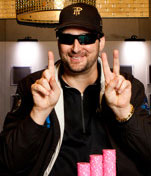
 ™
™



